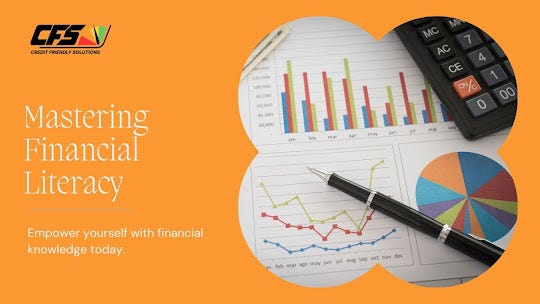Managing finances on a low-income salary can be challenging, but with the right credit solutions, you can increase your savings and improve your financial stability. This guide explores key strategies and approaches to help you leverage credit effectively.
1. Understanding Credit Solutions
Types of Credit Solutions:
- Personal Loans: These can provide funds for emergencies or major expenses at relatively lower interest rates compared to payday loans.
- Credit Cards: Useful for everyday purchases and building credit, but it’s essential to manage them wisely to avoid high-interest debt.
- Payday Loans: These should be avoided due to extremely high interest rates and fees.
- Microloans: Small loans typically offered by non-profit organizations or peer-to-peer lenders, often with favorable terms.
Credit Scores:
- Your credit score affects your ability to borrow and the interest rates you receive.
- Improving your credit score can lead to better loan terms and lower interest rates.
- Steps to improve include paying bills on time, reducing debt, and correcting errors on your credit report.
Credit Reports:
- Access your credit report for free annually from each of the three major credit bureaus (Equifax, Experian, TransUnion).
- Review your report to understand your credit standing and identify any errors that could be hurting your score.
- Dispute any inaccuracies with the credit bureaus to ensure your report accurately reflects your credit history.
2. Credit Solutions for Smart Borrowing
Low-Interest Loans:
- Consider loans from credit unions or community banks, which often offer lower interest rates than traditional banks.
- Explore peer-to-peer lending platforms as an alternative source of low-interest loans.
Credit Card Management:
- Choose credit cards with low-interest rates and no annual fees.
- Utilize rewards cards that offer cashback or points for everyday purchases, but pay off the balance each month to avoid interest charges.
- Balance transfer cards can help consolidate high-interest debt onto a card with a 0% introductory APR.
Debt Consolidation:
- Combining multiple debts into a single loan with a lower interest rate can reduce monthly payments and simplify your finances.
- Look for debt consolidation loans that offer reasonable terms and fees.
Avoiding High-Interest Debt:
- Steer clear of payday loans and high-interest credit cards.
- If you must use a credit card, pay off the balance each month to avoid interest charges.
3. Credit Solutions for Reducing Expenses
Negotiating Bills:
- Contact service providers to negotiate lower rates on utilities, rent, insurance, and other recurring bills.
- Many providers offer discounts or reduced rates for low-income customers.
Frugal Living Tips:
- Cook at home instead of dining out to save on food costs.
- Engage in DIY projects to save money on home repairs and maintenance.
- Shop at second-hand stores and take advantage of thrift shops for clothing and household items.
Discount Programs:
- Use coupons and discount codes to save on groceries and other purchases.
- Join loyalty programs and use cashback apps to earn rewards on everyday spending.
4. Financial Literacy and Credit Solutions

ducational Resources:
- Read books, take online courses, and attend workshops on personal finance and credit management.
- Websites like Investopedia and the Consumer Financial Protection Bureau offer valuable information and tools.
Financial Advisors:
- Seek out free or low-cost financial advisory services offered by non-profits and community organizations.
- Financial advisors can provide personalized advice and help you create a plan to manage your credit and increase savings.
Our Service Location
Rocklin
Sacramento
Online Tools:
- Utilize budgeting apps like Mint, YNAB (You Need A Budget), or PocketGuard to track spending and manage finances.
- Financial planning software can help you set and achieve savings goals.
5. Government and Community Credit Solutions
Assistance Programs:
- Government programs such as food stamps (SNAP), housing assistance, and utility assistance can help reduce your monthly expenses.
- These programs free up more of your income for savings.
Low-Income Savings Programs:
- Individual Development Accounts (IDAs) provide matching funds for low-income savers. These accounts can be used for education, homeownership, or starting a business.
- Matched savings programs often require participants to complete financial education courses.
Non-Profit Organizations:
- Non-profits can offer financial counseling, credit repair services, and assistance with budgeting and debt management.
- Organizations like the National Foundation for Credit Counseling (NFCC) provide resources and support for improving financial health.
Read More Blog: Get a Better Business Credit Score with Friendly Solutions
Frequently Asked Question
1. Are credit repair companies fix your credit score?
Yes, credit repair companies can fix your credit score.
2. How long does credit repair take with a company?
The time it takes for credit repair with a company varies but typically ranges from a few months to a year.
3. What are Credit Solutions?
Credit Solutions refer to services provided by companies or agencies aimed at helping individuals improve their credit scores or resolve credit-related issues.
4. Are Credit Solutions effective?
The effectiveness of Credit Solutions can vary depending on individual circumstances and the specific services offered by the provider. However, many people have seen improvements in their credit scores through these services.
5. How can I choose the right Credit Solutions provider?
When selecting a Credit Solutions provider, consider factors such as their reputation, accreditation, experience, fees, and the specific services they offer. Reading reviews and testimonials from past clients can also help assess their credibility and effectiveness.






Comments